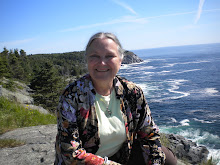I found myself in two very different places recently, places that shared stories about land deals, where wise reflection led to two very different solutions to the problems a blessing of abundance can create in families. One was in the Hudson River valley in New York, at Claremont, where the Livingston family is remembered, starting with their first settlement there in the 1600s. The other was in the little logging town of Montesano, Washington, where the founding families are remembered from just a few generations ago. There was an official docent to show us through the elegant home, now a museum, at Claremont. There was a descendant of the one of whom the story was told to show us around the little lake, the dam, the sites of the old houses, and the edges of the forest at the park in Montesano.
Robert Livingston, one of the drafters of the Declaration of Independence, had a huge estate in that part of New York, part by inheritance, and part by marriage. He was married to a remarkably resourceful woman who not only bore him ten children but also managed the estate while he was away doing public business. When their house was burned early on in the Revolutionary war, she managed to save herself and the children, hide the silver, and protect the library from the ravages of the British. Livingston was a believer in a natural aristocracy, not an inherited one, as befits a founder of a democratic nation. In those days, the expected thing for a landed family was that the oldest son would inherit the whole. That was not Robert Livingston's choice. Instead, on his death, he bequeathed each of his children an equal portion of the vast estate. They would all be rich, but much less rich than the eldest would have been under the old system. It was much more democratic. Indeed, in several generations, the wealth was completely dissipated. The last two members of his immediate lineage, two women, had different approaches to the disappearance of the old wealth: one married a rich man and the other went to work on Wall Street.
In Montesano, it was Gene's grandmother who came into ownership of the large tract of land with the lake and the dam when her husband died in an accident at work. She had borne fourteen children, and had to raise them, so she built an electric generating station at the dam site and operated it until quite late in her long life. In her will, she gave the large tract of land with its lake and dam over to the town as a park. She stipulated that there should be no making of money from it -- no logging, no more electricity generated, no selling of pieces of it--but that it should be used as a park. If the town failed in this, the land would revert to the family. The town did not have resources to develop the land as a park, but the State was willing to create a park there, leasing the land from the town. The land remains intact, and in an area where most of the timberland is clearcut on a regular basis, the forest grows in its own way. Gene's grandmother could not have divided her estate equally among her children without dividing that piece of land, so she gave it away. She clearly believed in fairness and in the value of keeping that parcel in one piece. Did she believe in a natural aristocracy, rather than an inherited one, as Livingston did? Her grandson Gene works in the woods, and her other grandchildren and great-grandchildren work at many occupations that keep things moving in that town and elsewhere.
Different families find different solutions to questions of fairness in inheritance. Seeing the same issues come up in such different contexts made me think that sometimes people can do the right thing, and that not all right things look the same.
Subscribe to:
Post Comments (Atom)

No comments:
Post a Comment